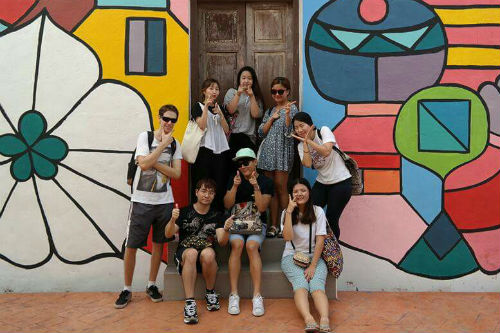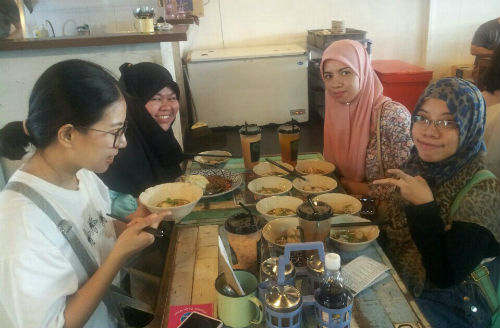
Nowadays, many Korean students study abroad or travel overseas. I wanted to experience foreign cultures, and I studied at the University of Malaya (UM) which is located in Kuala Lumpur, Malaysia for one year as an exchange student. It was a valuable time for me because I experienced and learned a lot of things.
It is tough to stay in another country as a foreigner who knows nothing about the new society. An exchange student lives as a local student instead of a traveler. Thus, adaption and settlement are important in the first place. However, with the help and support from the university, things got easier. With my experience in Malaysia, UM did their best to support foreign exchange students at the university.
First, UM has an International Student Center (ISC), which gives a hand on settling everything including visa documentation, accommodation, and even registration for classes. Besides, they make gatherings and events for all the exchange students. The center operates a good buddy system. In one buddy line, there are five students who came from different countries and one local student as the leader. There are some chances to gather so that they could make foreign friends and get closer by playing games and talking to each other. Second, homestay or day trips are planned twice in a month for exchange students. The activities are not compulsory, which means if I am busy doing assignment and other personal schedule, I don’t need to join them without feeling burdened. During some weekends, Malaysian cultural trips made up of different races and traveling to other cities were fun and memorable. It was very convenient because they provided transportation, staff, admission fees and snacks. Last, they arranged Korean internship staff at few offices which exchange students could visit often in order to decrease difficulties when the students communicate with local staff because of a limitation of language.

However, the big difficulty that every exchange student suffered was administrative management, from VISAs to registration for courses. Often, it took a long time to deal with problems and they said just “Wait.” Once, they forgot to tell me about what I asked before and they even forgot to cope with it. For example, whole water servers were broke down so we asked about it to the office. At first, they forgot to call a repairman and after that the repair was postponed several times. Another thing was registering for courses. We must write down the course names we want on the application form and get a signature or a stamp from professors and each faculty by ourselves. Then, we handed it in to ISC. In this process, some students’ papers were accepted, but some were not. It seems to be unfair. If we cancel one class, we have to start from the beginning and repeat this process. It was not effective. In my case, there was a class I wanted to apply for, but during that process the class was at full capacity. Also, we couldn’t see the syllabus before registering for courses and we could only check it after we had signed up for it on the computer through the ISC staff. I don’t know why we had to do it like this, while local students deal with all the process on the computer. Classes are fundamental for students. This problem should be solved for exchange students.
I wrote about a few inconveniences that I experienced with my friends at UM. But, I was really satisfied with most of their support. They did their best with a smile. I think I received more benefits than my university does for exchange students. Of course, exchange students did their own things by themselves, but universities should support them to adapt and understand the new culture, society and system more easily. I hope exchange students make good memories and enjoy every moment, even though there are a few difficulties.
By Gong Ah-reum, Senior, Faculty of Business Administration

